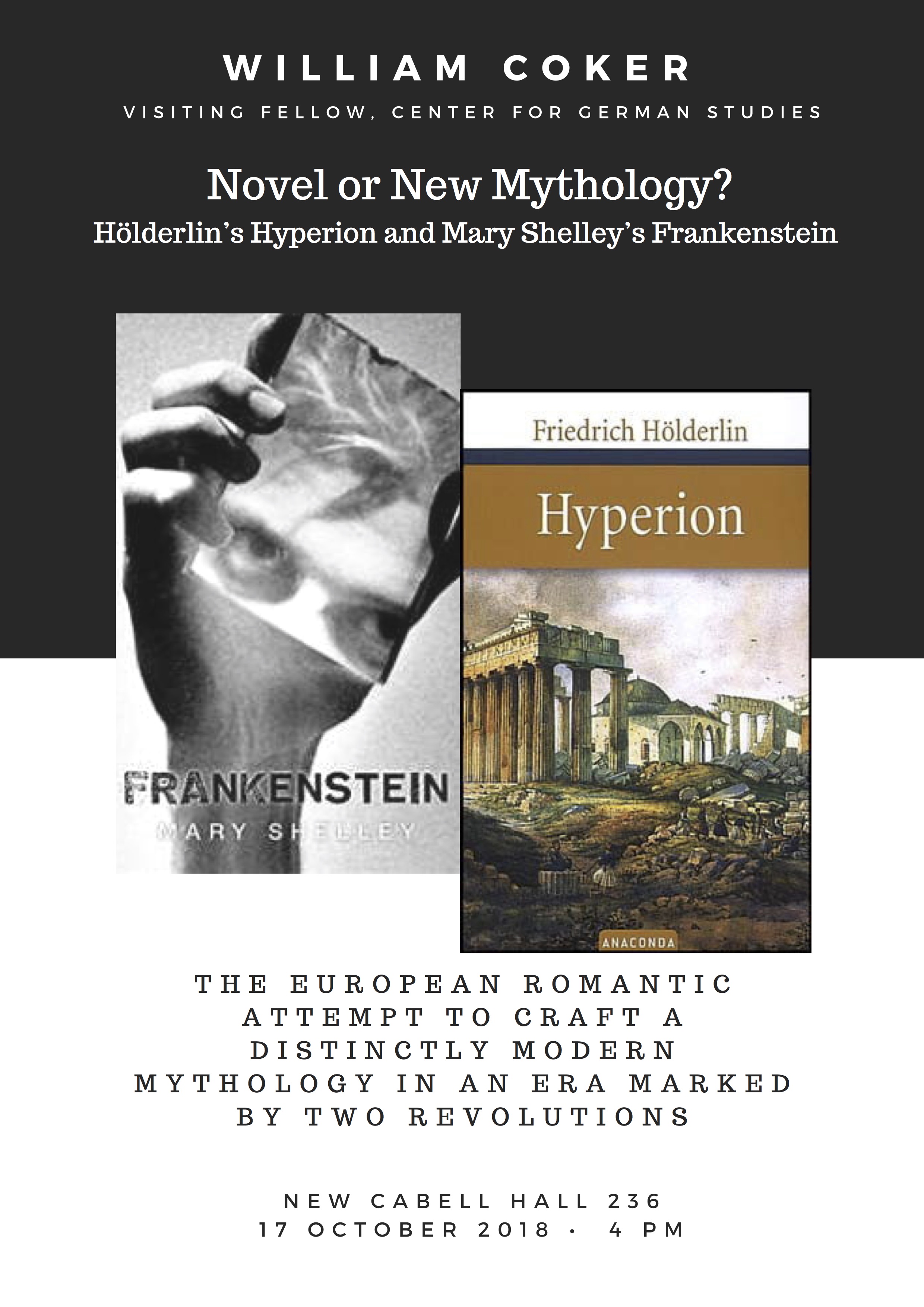William Coker Talk ~ Novel or New Mythology? Hölderlin’s Hyperion and Mary Shelley’s Frankenstein
Friedrich Hölderlin’s Hyperion and Mary Shelley’s Frankenstein exemplify the European Romantic attempt to craft a distinctly modern mythology in an era marked by two revolutions: Kant’s Copernican turn in philosophy and the political revolution in Paris. Both works present a novelistic counterpoint to the German Idealist ambition of creating a “mythology of reason" (Mythologie der Vernunft). Enabling the sensuous experience of what for Kant are mere postulates of practical reason, this “new mythology” aims to bridge the gap between theory and practice, supplanting religion and philosophy as the medium for the culture’s highest truths. As experiments in “new mythology,” however, Hölderlin and Shelley’s novels can best be described as controlled failures, whose failure in fact indicates what distinguishes the post-Enlightenment novel from its myth-making precursors in epic and tragedy.
